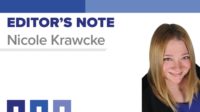Continuing education is extremely important for MEP engineers, not only to meet various state licensing criteria, but also to ensure you are designing the best possible mechanical and plumbing systems for your clients. The industry is rapidly evolving with a constant stream of new products and technologies, not to mention the importance of staying up-to-date on the latest code changes and standards.
Before 2020, it was easy for engineers to stay current on the latest trends, as manufacturer’s reps would often come right to you in the office. With many firms embracing a work-from-home or hybrid approach nowadays, many reps are finding it difficult to connect with engineers, according to our sister publication, Supply House Times.
According to a new Pew Research Center survey, about a third (35%) of workers with jobs that can be done remotely are working from home all of the time. This is down from 43% in January 2022 and 55% in October 2020 — but up from only 7% before the pandemic. Additionally, the survey found that 41% of those with jobs that can be done remotely are working a hybrid schedule. Those numbers are expected to grow in the coming years.
That begs the question, how are engineers staying up-to-date on the latest products, technology and training? Is there still a need for in-person training and meetings with the ability to do video conferences and training online? How do you prefer your continuing education? Please, vote in our online poll. We will share the results in a future issue of the magazine.
Working from home could have additional disadvantages on top of the lack of continuing education opportunities, such as increased isolation and lack of teamwork, lack of proper equipment and security concerns, increased home office costs, increased distractions leading to more frequent breaks and burnout. Another major loss could be the lack of professional growth and mentorship — something our columnist James Dipping discusses this month.
“Working from home is certainly convenient, but I’d contend that it does not support a quality mentorship or career development plan,” he writes. “In my experience during COVID, how people communicated changed drastically because of not being in-person. The old casual conversations and learning sessions changed to quick pointed calls, which then changed to chat messages (depending on your age). Talking, collaborating and learning became information gathering to complete a task, and nothing more.”
It’s a great column on an interesting topic — don’t miss the rest of it!
I’m curious about those of you who have embraced the work-from-home model. What have your experiences been like? Please reach out to me at krawcken@bnpmedia.com. Let’s have a conversation.



